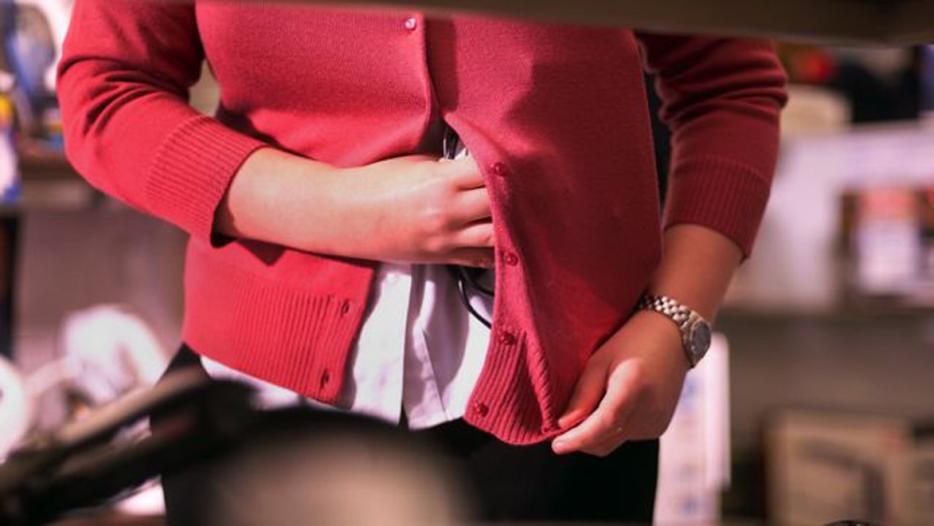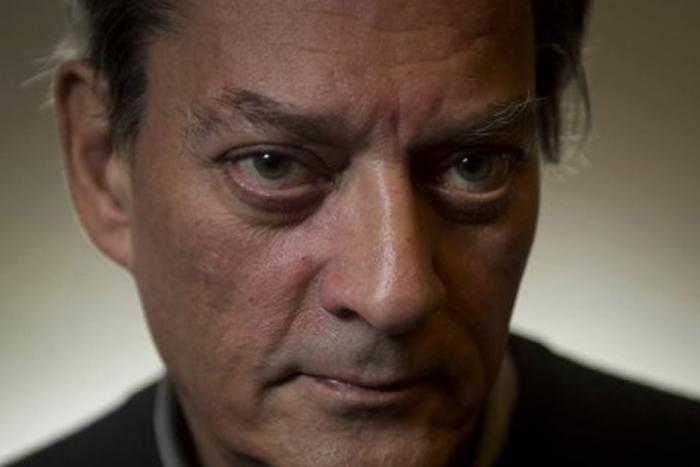In the land of the free, deodorant is a caged bird. I discovered this when I forgot to pack mine on a trip to New York, and went to the pharmacy to find it locked up in the back aisle under a security camera. The shelves were shuttered by clear plastic doors and chained at their metal keyholes. The fluorescent lights hummed. I stared at my heart’s desire across the thick shield like a visitor at a maximum security prison. Why did they want to keep us apart?
It turns out deodorant is one of America’s favourite things to steal. It lends itself to resale at flea markets or corner stores, so it’s a good choice both for small-time thieves and “organized retail crime” rings—the shoplifting mafia. Last year, Axe deodorant was the sixth most shoplifted item in the country, beaten out by filet mignon, power tools, and Jameson whiskey, but a few notches ahead of “Let’s Rock” Elmo. At first I couldn’t imagine how you’d steal filet mignon, but then I remembered another shopping oddity I’d noticed in the area. My boyfriend lives in Clinton Hill, a Brooklyn neighbourhood known for the Pratt Institute, a private art college with a sculpture garden and mosaic floors in the library; it’s also known for its proximity to the Marcy Projects, where Jay-Z grew up. When you buy fish at the local grocery store, you step up to the counter and ask for what you want, and they give you a chit. You take the chit to the cash, where the checkout girl pages the fish counter man on the intercom to bring your purchase over for you. At first I thought it was a nice touch, intended to keep my fish fresh while I circle the aisles for other things. Now I realize it’s because they don’t trust me.
At a literary reading I went to once in Manhattan, the emcee said that every month she asks the writers to take one risk onstage. One time, she said, a short story writer got up and recited all his passwords: for his work email, his personal email, the PIN for his bank account, his Amazon account, his Netflix account, his passwords for paying his bills, his password for opening up his computer, his iTunes account, his social security number, his passport number, his credit card number and expiry date. Here they are, he told the audience. I’d prefer it if you didn’t steal my money, order books on my account, or assume my identity. But I will just have to trust you.
I’ve only ever stolen the basics: bulk candy from grocery store bins; cutlery, plates, and salt and pepper shakers from restaurants; student bus tickets when I’m not a student anymore; tampons. I once got into a fight with a boyfriend because he picked an apple off a tree in someone’s yard while we were hitchhiking through Nova Scotia. I argued that if you have to walk across someone’s lawn to get to the fruit on their tree, it’s not exactly “public,” and he argued that anyone who could afford a car in their driveway could afford to share their apples. Not that I expect gold stars (maybe stealing restaurant plates is wrong), but for the most part I have been faithful to the social contract whereby goods don’t need to be nailed down or patrolled by armed guards to keep me from making off with them.
It’s odd to walk into a world where this social contract is only intermittently recognized. Walgreens, the pharmacy in Clinton Hill, has the tube lighting and grey-flecked vinyl flooring of a high-school gym. It’s one of the major American chains, and it sells its own Walgreens knock-offs next to name-brand soaps, vitamins, and eye-drops. I start in aisle one, where the makeup is surprisingly unfettered. One aisle over, however, in “bath needs,” the bodywash is under lock and key. So are soap bars, although only the Dove; apparently it’s fine to steal Irish Spring, which, at $5.99, is more expensive. A girl with a dark braid and a raincoat brushes past me to examine the shelves. “Seriously?” she says under her breath. “Are you just looking for something that’s not locked up?” I ask her. “Yeah,” she says, “I’m not down with...this,” waving her hand at the hostaged bodywash. She walks away without any soap.
Head and Shoulders two-in-one shampoo and conditioner is locked up, but I can examine the mustache and beard brush-in colour gel to my heart’s content. Despite the high price point and easily pocketable size, Americans are entirely uninterested in stealing vitamins. Some items are under preventative arrest to keep them from becoming accessories to a crime: allergy pills contain pseudoephedrine, which can be used to make crystal meth, so the Claritin is locked down. Sadly, what Americans desperately want to steal is baby formula. The breast pumps, on the bottom shelf, are in no such demand.
I watch another woman, a blond in torn jeans wearing an orange-and-brown bandanna over her head, peer through the shield at the deodorant. She brings her face close to the plastic, then lifts her hand to tug at the shutter, her skin bare at the cut-off fingers of her blue gloves. On the highest shelf, a pair of rocking-horses, one pink and one chocolate brown, peer down at her from between a bear big enough to be furniture and two floppy-tongued dogs, like construction workers eating lunch on a high beam. She picks at the locked case one more time, then walks away.
I stand in front of the shelf with the Visine; it’s locked, so I press the button on the case that promises customer service. “Customer service to eye care,” a recorded voice trills over the loudspeaker. It trills five more times before a short man with a shaved head, wearing a Walgreens lanyard, comes to help me. “You n-n-need something?” he asks brusquely, coming at top speed around the corner of the aisle. “Just Visine, thanks,” I say, then, “How come the Visine is locked up but this one isn’t?” I point to the same product at the same price with a different brand name on a lower shelf. “People steal this,” he says, unlocking the Visine case. “They don’t steal this one?” I ask, of the other eyedrops. “No, they d-d-do,” he says. “But we can’t lock up everything.”
On my walk home, the Pratt sculpture gardens are closing down for the night. I used to use the library inside, with its beautiful mosaic floors, almost every day until one morning they asked me to present my student card and I had to admit I didn’t have one. The gardens have winding walks with cherry trees in the spring and roses in the summer, and security guards at their wrought-iron entrances all year round. When it gets dark, they come out of their small booths in uniform, speak briefly on their walkie-talkies, and lock up their gates.





